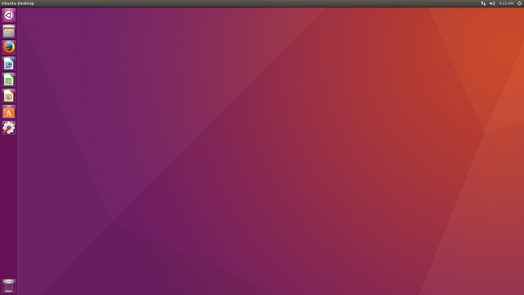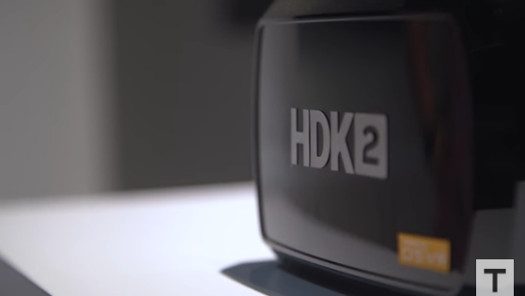Open source enthusiasts have no shame in explaining that they’re involved in building a better world. One way of doing that is reaching across language barriers. When this Spanish screencast about FreeCAD caught my eye on YouTube, I knew I had to write about it for FOSS Force.
FOSS Force
Who’s going to get bragging rights this year? Last year it was Arch. The year before it was Ubuntu. Call out the troops and get bragging rights by making your favorite our “Best Linux Distro.”
The FOSS Force Readers’ Choice Awards Poll
 Update: The voting on the first “qualifying” round of our Best Linux Distro poll closed on Saturday, January 28. We have replaced that poll in this article with the Best Linux Distro final round poll. Results from the first round of polling can be found on our Completed Polls page.
Update: The voting on the first “qualifying” round of our Best Linux Distro poll closed on Saturday, January 28. We have replaced that poll in this article with the Best Linux Distro final round poll. Results from the first round of polling can be found on our Completed Polls page.
It’s time to start the process of choosing the FOSS Force Readers’ Choice Award winner for Best Desktop Linux Distro for 2016. This is the third outing for our annual poll, which began in a March, 2015 contest that was won by Ubuntu, which bested runner-up Linux Mint by only 11 votes. Last year we moved the voting up to January, in a contest which saw Arch Linux as the overall winner, with elementary OS in second place.
Just like last year, this year’s polling will be a two round process. The first round, which began early Friday afternoon when the poll quietly went up on our front page, is a qualifying round. In this round, we’re offering a field of 19 of the top 20 distros on Distrowatch’s famous “Page Hit Ranking” list. Those whose favorite distro isn’t on the list shouldn’t worry — your distro’s not out of the game yet. Below the poll there’s a place to write-in any distro that’s not in the poll to be tallied for possible inclusion in the second and final round of polling to follow.
You might first think about open source in the context of outstanding tools for lean startup companies, but open source also finds a welcome home in behemoth, established companies, such as Walmart. In this O’Reilly OSCON video interview with Walmart Lab’s Alex Grigoryan, learn how Walmart both benefits from and contributes back to open source. The key takeaway? Open source allows you to reuse software components in labor saving ways.
The proverbial “better mousetrap” isn’t one that takes a certified biologist to use. Like Ubuntu, it just needs to do its job extremely well and with little fuss.
Roblimo’s Hideaway

I have never been much of a leading-edge computing person. In fact, I first got mildly famous online writing a weekly column titled “This Old PC” for Time/Life about making do with used gear — often by installing Linux on it — and after that an essentially identical column for Andover.net titled “Cheap Computing,” which was also about saving money in a world where most online computing columns seemed to be about getting you to spend until you had no money left to spend on food.
Anyone who likes to work with graphics will at one time or another find compositing software useful. Luckily, FOSS has several of the best in Blender and Natron.
<h3the Viewing Room
Get a quick overview of Natron, cross-platform open source digital compositing software in this new YouTube video.
Based on this video, it appears as if this Chromebook from Samsung would be a great machine with GNU/Linux installed on it.
The Viewing Room

When watching this video, imagine how nice this Chromebook would be with a full Linux install.
For those of you who like your reality virtual and your software open, there are options — such as this nifty headset our Phil Shapiro found while searching YouTube.
The Screening Room

Virtual reality is the big deal these days and it’s great to see open source is alive and well in this realm. This newly uploaded video shows one of the VR solutions open source enthusiasts can explore and enjoy, the Razer OSVR HDK2 virtual reality headset.
Evidently DevOps running MongoDB haven’t heard the word about the latest round of ransomware targeting the database, as the numbers of deployments with data being held for ransom continues to rise.

Last week when the news started hitting the net about ransomware attacks focusing on unprotected instances of MongoDB, it seemed to me to be a story that would have a short life. After all, the attacks weren’t leveraging some unpatched vulnerabilities in the database, but databases that were misconfigured in a way that left them reachable via the Internet, and with no controls — like a password other than the default — over who had privileges. All that was necessary to get this attack vector under control was for admins to be aware of the situation and to be ready and able to reconfigure and password protect.
Guess what? It hasn’t gone down that way — at least not so far.
On Wednesday when I wrote about this there had been about 2,000 databases attacked. By this morning, according to eWeek, over 10,000 databases have been affected. What’s more, last week it appeared as if all of the attacks were being carried out by one person or organization. Now there are at least five organizations steadily working in an attempt to turn unprotected databases into bitcoins.










